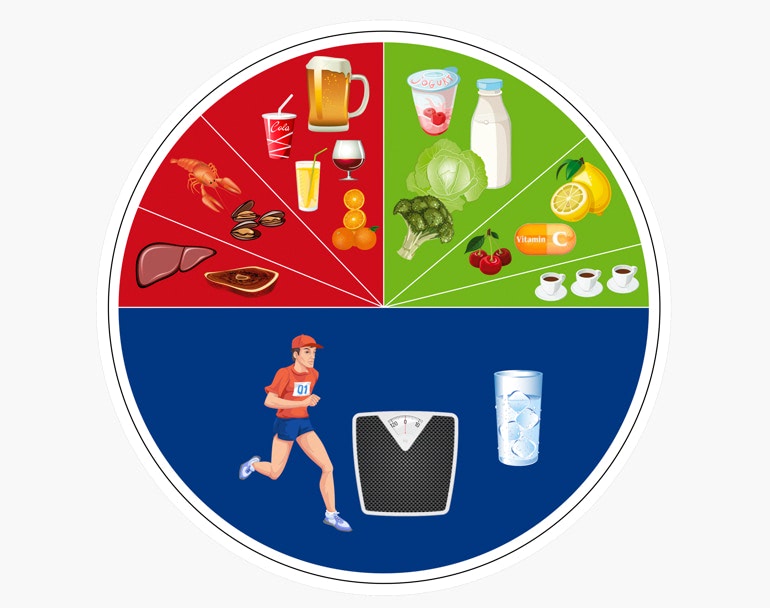Why should you change your lifestyle?
How can you prevent further gout attacks?
Prophylaxis of acute gout with painkillers and other drugs is universally recommended when initiating any urate‐lowering therapy in order to prevent acute gouty arthritis for a period of at least 6 months. Scientific societies worldwide recommend colchicine as the first line medication for preventing further gout attacks. This should be taken for a period of six months after the onset of the initial acute attack. However, colchicine can cause side effects such as nausea, vomiting and diarrhoea. The intensity and frequency of these side effects can be reduced through lowering the dosage without significant loss of the drug's effectiveness.
How to prevent gout
Creating a plan and targets can make it easier to achieve the necessary lifestyle changes that help to prevent gout. Here are some useful tips on changes you should make:
- Regular exercise reduces uric acid levels, stimulates the metabolism and helps with weight loss. Try walking for 20 minutes a day and doing exercise that gets you sweating twice a week. Studies show that walking 10,000 steps a day can prevent illnesses and help you stay healthy. Make sure you drink enough when exercising.
- Try to reach or sustain a healthy weight/ body mass index. High levels of meat and seafood consumption are associated with an increased risk of gout, whereas dairy products are associated with a decreased risk. A moderate intake of purine-rich vegetables or protein is not associated with an increased risk of gout. Alcohol (especially beer and spirits) should be avoided because it affects the ability of the kidneys to remove uric acid from the body.

These recommendations for gout prevention are for patients with hyperuricaemia or gout. Frequently, gout patients also show cardiovascular comorbidities, hence lifestyle changes that help improve overall body fitness levels are recommended.

